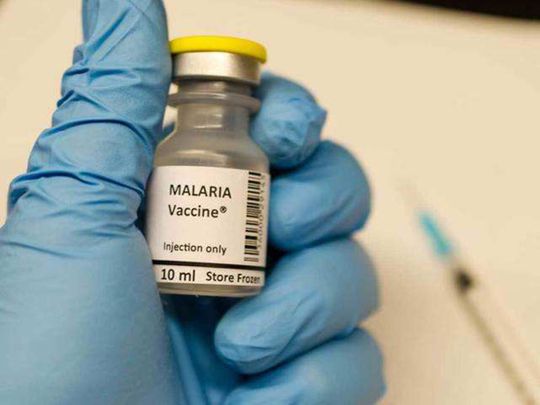Ghana is the first country to approve a new malaria vaccine that has been described as a “world-changer” by the scientists who developed it.
The vaccine – called R21 – appears to be hugely effective, in stark contrast to previous ventures in the same field.
Ghana’s drug regulators have assessed the final trial data on the vaccine’s safety and effectiveness, which is not yet public, and have decided to use it.
The World Health Organization is also considering approving the vaccine.
Malaria kills about 620,000 people each year, most of them young children.
It has been a massive, century-long, scientific undertaking to develop a vaccine that protects the body from the malaria parasite.
Trial data from preliminary studies in Burkina Faso showed the R21 vaccine was up to 80% effective when given in three initial doses, and a booster a year later.
But widespread use of the vaccine hinges on the results of a larger trial involving nearly 5,000 children.
These had been expected to take place at the end of last year, but have still not been formally published. However, they have been shared with some government bodies in Africa and scientists.
I have not seen the final data, but have been told it shows a similar picture to the earlier studies.
Ghana’s Food and Drugs Authority, which has seen the data, has approved the vaccine’s use in children aged between five months to three years old.
Other African countries are also studying the data, as is the World Health Organization.
Prof Adrian Hill, director of the Jenner Institute at the University of Oxford, where the vaccine was invented, says African countries are declaring: “we’ll decide”, after being left behind in the rollout of Covid-19 vaccines during the pandemic.
He told me: “We expect R21 to make a major impact on malaria mortality in children in the coming years, and in the longer term [it] will contribute to the overall final goal of malaria eradication and elimination.”
The Serum Institute of India is preparing to produce between 100-200 million doses per year, with a vaccine factory being constructed in Accra, Ghana.
Each dose of R21 is expected to cost a couple of dollars.
Adar Poonawalla, CEO of the Serum Institute, said: “Developing a vaccine to greatly impact this huge disease burden has been extraordinarily difficult.”
He added that Ghana, as the first country to approve the vaccine, represents a “significant milestone in our efforts to combat malaria around the world”.





